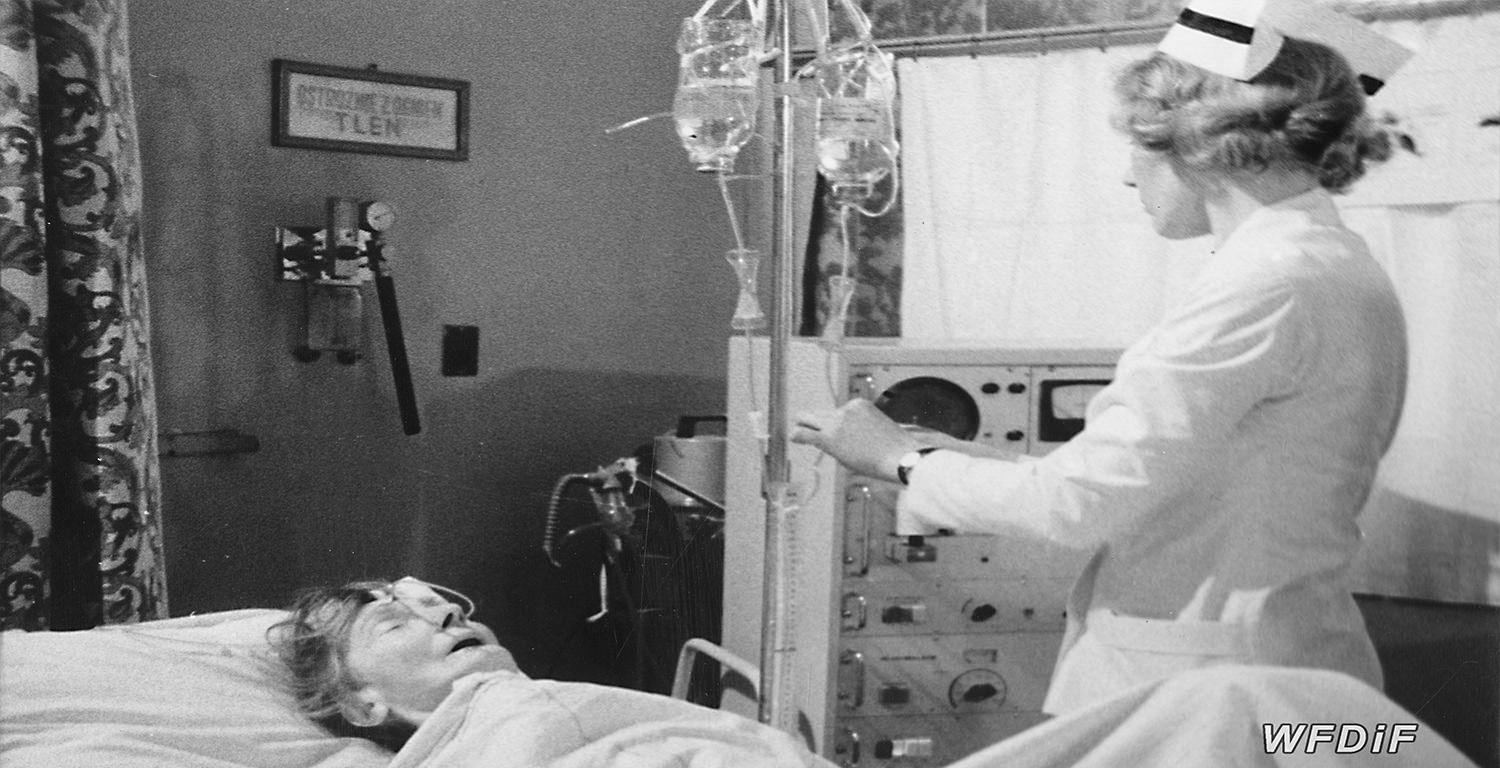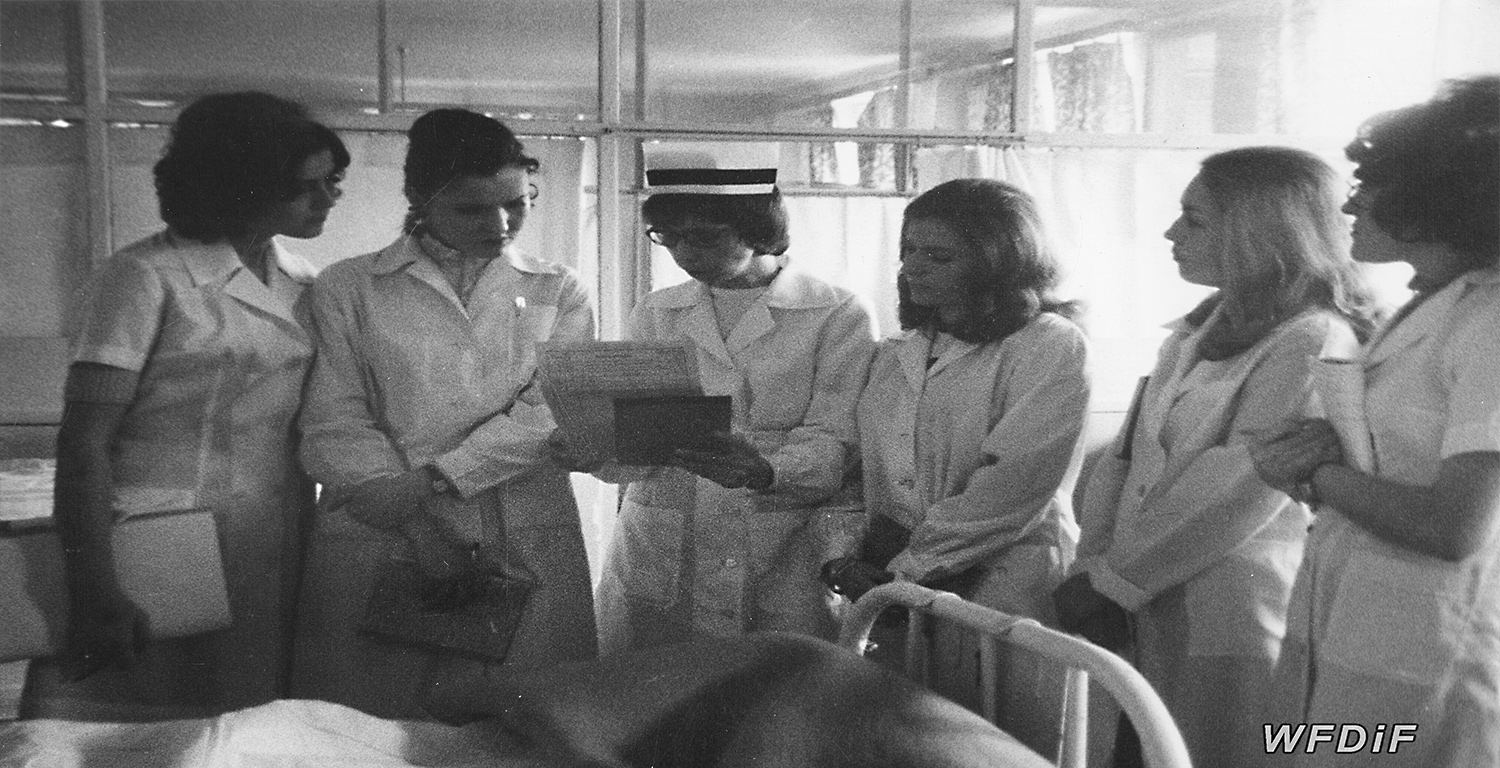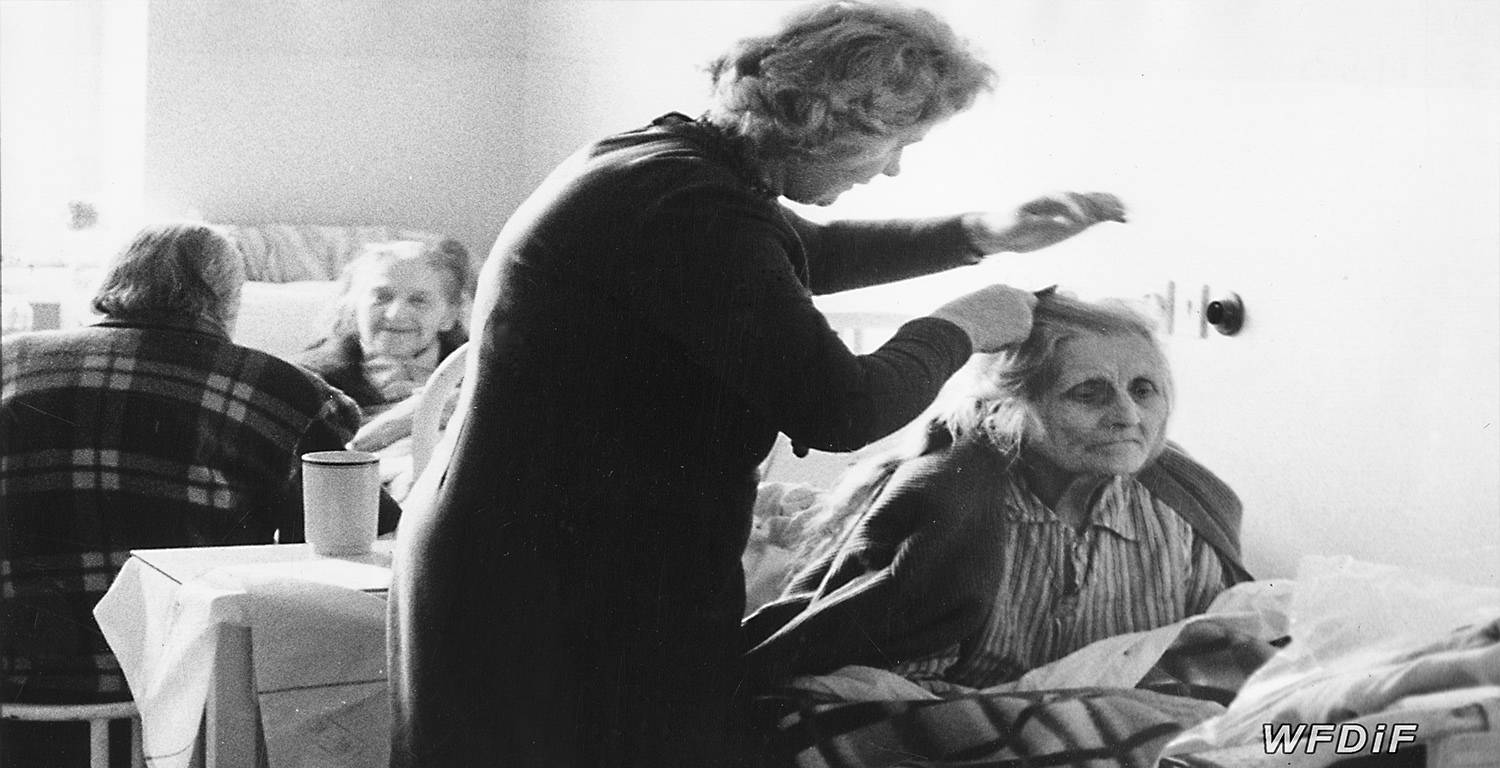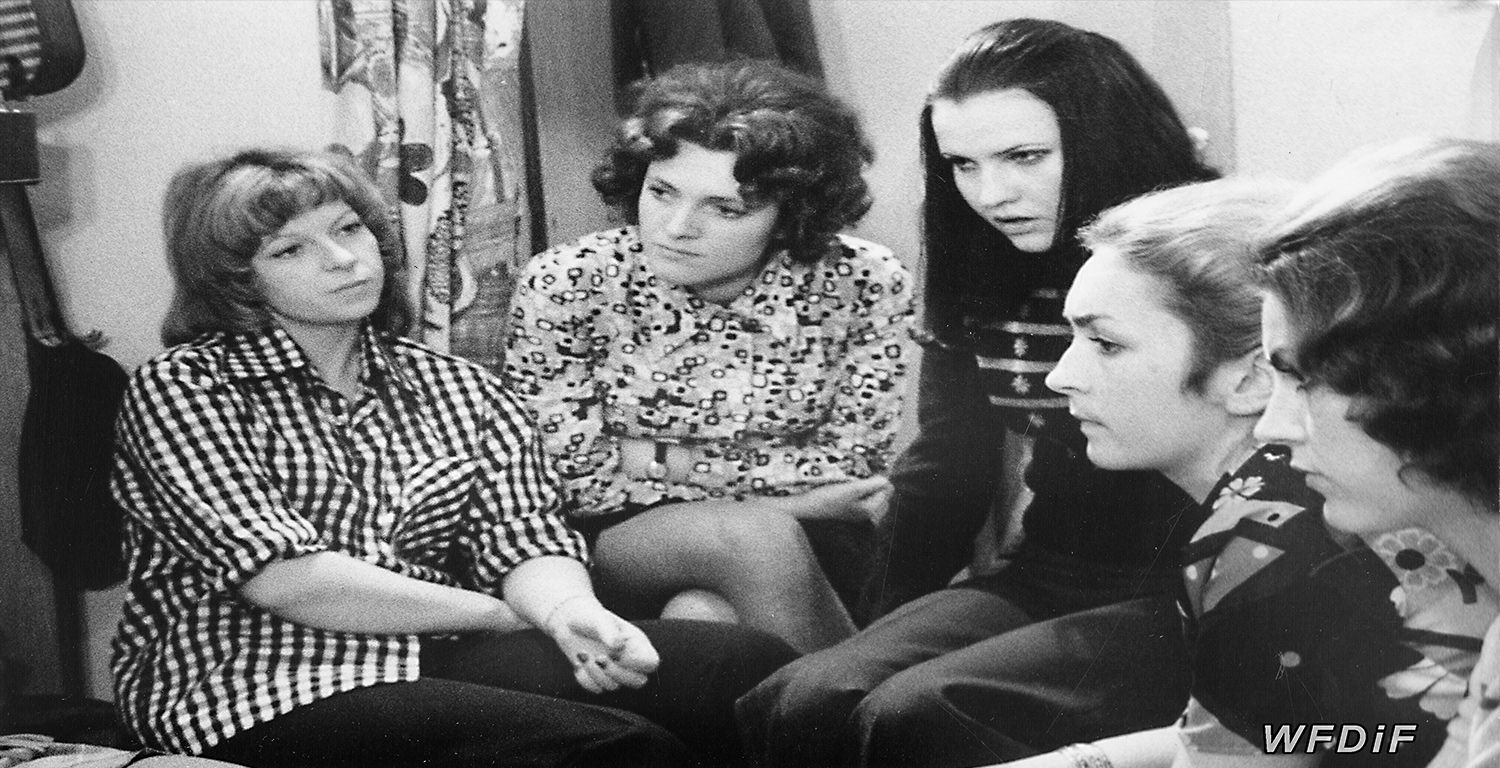This film celebrates the opening of the first higher education nursing course in Poland. The camera focuses on the male Dean, who eloquently discusses his goals and objectives. As the film progresses Gryczełowska’s gaze shifts from him to individual young women, who work in this female-dominated profession.
The young, fashionably dressed students discuss their professional experiences at the hospital with much less confidence. Expressing personal concerns regarding their careers, many conclude that social expectations from nurses tend to be unrealistic.
Some of their voices are heard off-screen, others are caught on camera. Many appear optimistic and appreciate the opportunity the course offers to improve their chance at professional gratification.
One of the women even sees the job as the foundation of her psychological well-being: ‘This is something I’ll always be coming back to, when misfortune hits me, in any case of failure in my marriage or love’.
Others point out that their career choices go hand in hand with the social role of the woman: ‘You should draw satisfaction from helping others’.
As they sit together and converse about their jobs and private lives, some women appear to prioritise their personal well-being over that of their patients, possibly hinting to the gradual change of female attitudes in the country. At the same time, they find work-life balance difficult to maintain.
Towards the end of the film, the women begin to realise that the job is too demanding to keep their initial optimism. They begin to cite examples of successful nurses, who are mentally detached from any commitment to patients. Finally, one of them says, ‘Not a single angel will graduate from this course’.
Gryczełowska’s edit of interviews and conversations reveals that in a self-defensive gesture, younger Polish women progressively depart from the angelic perseverance of the mythical Polish Mother.
Nevertheless, the film closes on a positive note. Despite all the hardships the female nurses have to withstand, their optimism prevails.
They still hope that social and cultural change will elevate the unwelcomed workload from their lives and that they will gain some sense of satisfaction in their work. However, they do understand that the overall gender situation in the country is out of their hands.
 RETURN TO Krystyna Gryczełowska Nurses
RETURN TO Krystyna Gryczełowska Nurses Read More
Read More View images
View images More films
More films




